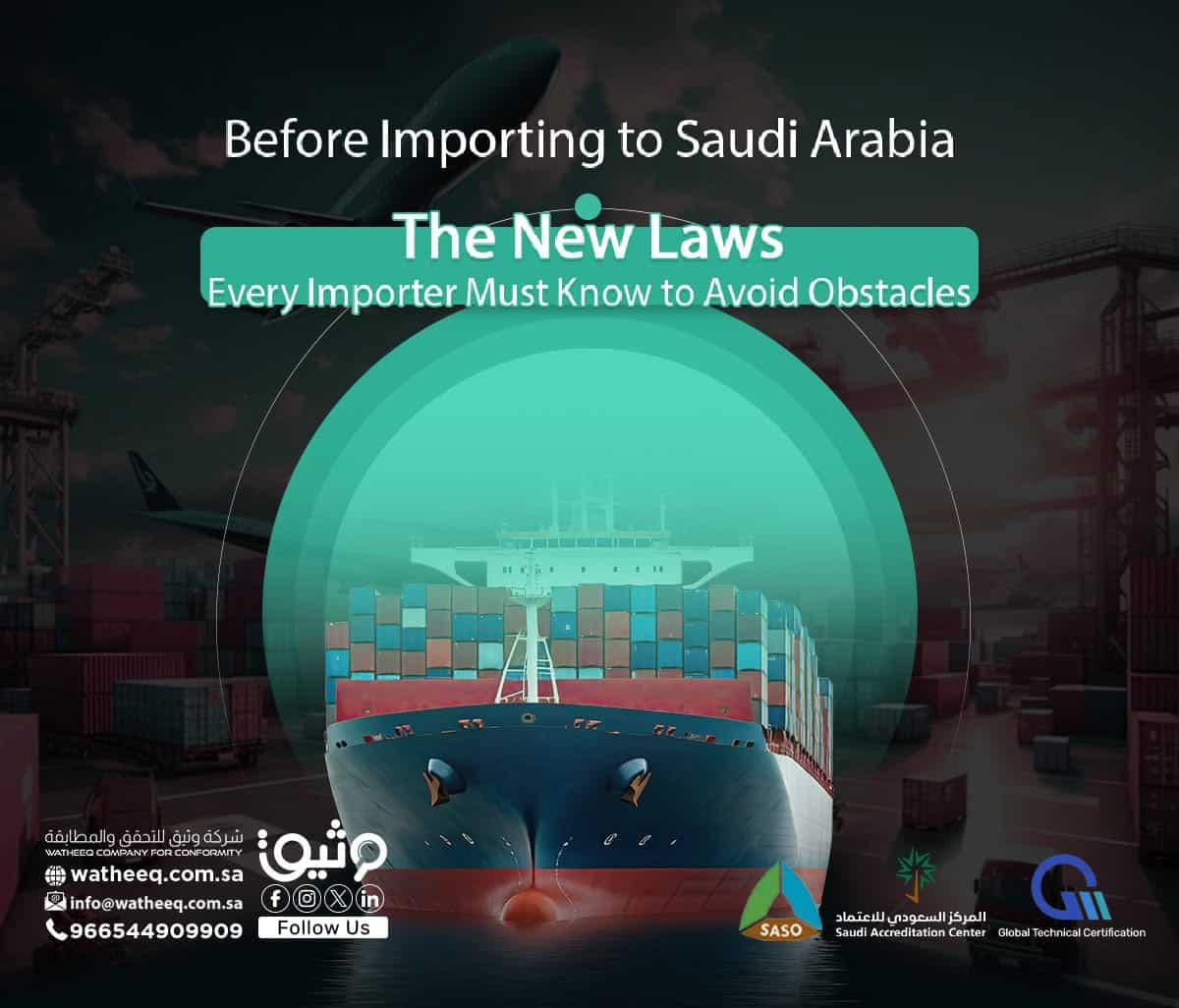Before Importing to Saudi Arabia: The New Laws Every Importer Must Know to Avoid Obstacles
 13 Apr 2025
Articles
13 Apr 2025
Articles
 13 Apr 2025
Articles
13 Apr 2025
Articles

Learn about the new Saudi import laws that every importer should know to ensure their products enter the Saudi market smoothly. Discover the conditions and requirements for importation, customs procedures, and conformity certificates according to the latest regulations.
Table of Contents:
1.Why Should Importers Keep Up with Saudi Arabia’s New Laws?
2.Key New Amendments to Saudi Arabia’s Import Laws
3.Import Conditions and Requirements According to Saudi Regulations
4.The Role of Zakat, Tax and Customs Authority in Regulating Imports
5.The Importance of Conformity and Quality Certificates for Imported Products
6.What Is the “Saber” System and How Does It Affect Importation?
7.New Customs Procedures Importers Should Know
8.Penalties and Violations for Non-Compliance with Saudi Laws
9.Tips to Ensure a Successful Import Process Under the New Laws
The new Saudi import laws form the foundation for legally and smoothly bringing products into the Saudi market. As regulations evolve, it is essential for every importer to stay up to date to avoid customs delays, fines, or shipment rejections.
Recent updates include:
Mandatory registration of all imported products on the “Saber” platform to ensure compliance with Saudi standards.
Requirement to obtain the Conformity Certificate for certain product categories
Application of Value-Added Tax (VAT) on some imported products.
Stricter penalties on prohibited or non-compliant goods.

To ensure smooth entry of products into the Saudi market, importers must comply with the following:
Register on the “Saber” platform and obtain the conformity certificate before shipping.
Comply with restrictions on prohibited or controlled products
Imported products must comply with Saudi standards. Key required conformity certificates include:
Hold a valid commercial registration that includes import activity.
Health and safety certificates for food and pharmaceutical products.
GCC Conformity Certificate for electrical and electronic products.
SASO Certificate to ensure compliance with Saudi quality standards.
“Saber” is an electronic system aimed at facilitating the entry of products into Saudi Arabia by:
Registering imported products and issuing conformity certificates.
Verifying product compliance with Saudi specifications.
Reducing the time and effort required to complete import procedures.
The new procedures include:
Classifying imported products according to the HS Code.
Applying customs duties based on the specific regulations for each product.
Electronic submission of customs clearance requests via the FASAH platform.
The Saudi government imposes penalties on violators, including:
Financial fines on non-compliant products.
Seizure or re-export of violating products.
Suspension or cancellation of the import license in cases of repeated offenses.
✅ Check the new regulations before starting the import process.
✅ Ensure your products are registered on the “Saber” platform and obtain the necessary conformity certificates.
✅ Work with reliable shipping agents to ensure your shipments meet required standards.
✅ Use accreditation services like “Watheeq” to ensure a smooth import process.
Compliance with Saudi Arabia’s new import laws is essential to ensure the entry of imported products into the Saudi market without delay or legal issues. By keeping up with updates, providing the required documents, and registering on the “Saber” platform, importers can avoid obstacles and achieve sustainable success in their business operations.
Watheeq ensures your business meets the highest standards. Need certification, inspection, or guidance? We're here to help
Contact Us